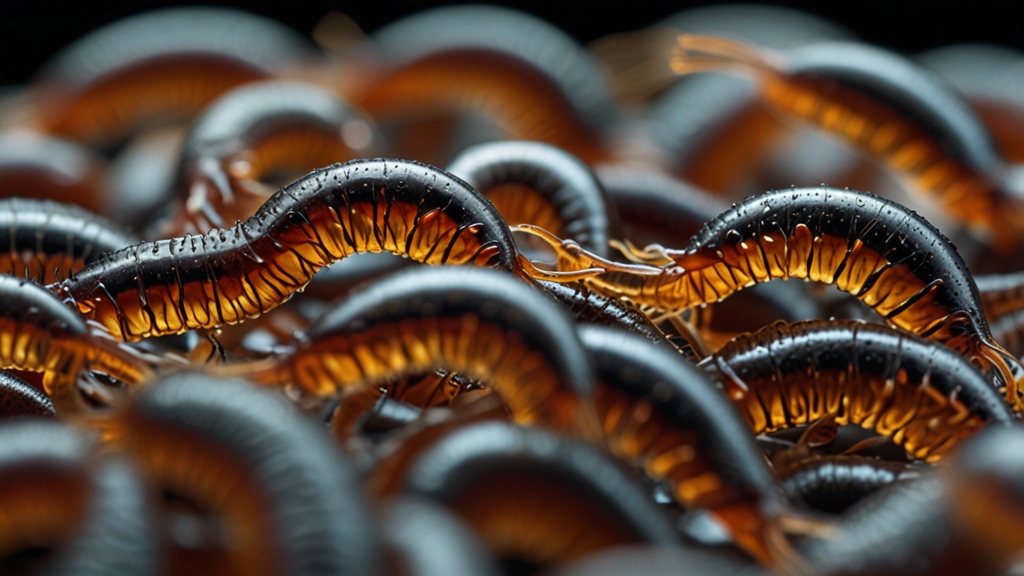The Fascinating Life of Parasites: How They Manipulate Their Hosts
Parasites are among the most fascinating and complex organisms in the natural world. Far from the simplistic view of merely being free-loaders, many parasites have evolved sophisticated methods to manipulate their host organisms to ensure their own survival, growth, and reproduction. From altering a host's behavior to manipulating its immune response, the life of a parasite is a masterclass in biological ingenuity.
Understanding Parasites
A parasite is an organism that lives on or inside another organism (the host), often causing it harm. The relationship is usually negative for the host but beneficial for the parasite, which gains nutrients, shelter, or other advantages. Parasites can be found across a range of species, including plants, animals, and even humans. They span across categories such as protozoa, helminths (worms), ectoparasites like fleas and ticks, and even certain bacteria and fungi.
Behavioral Manipulation
One of the most intriguing aspects of parasitic life is their ability to manipulate the behavior of their hosts. A striking example of this is the Toxoplasma gondii, a protozoan that infects rodents but needs to get into a feline host to complete its life cycle. To achieve this, the parasite subtly alters the behavior of the rodent, making it less fearful of cat predators. Infected rodents are more likely to engage in risk-taking behaviors, increasing their chances of being caught by a cat.
"The mind-bending ability of parasites like Toxoplasma gondii highlights the incredible ways in which these organisms can influence host behavior, ensuring their own survival and propagation," notes Dr. Sarah Goldfarb, a parasitologist at the University of Ecology.
Immune System Evasion
Parasites have also developed extraordinary tactics to evade or suppress the host's immune system. For instance, the malaria parasite Plasmodium falciparum has evolved to live inside red blood cells, effectively hiding from the immune system. Additionally, it frequently changes the proteins on its surface, making it harder for the host's immune system to recognize and attack it.
Some parasites produce molecules that directly interfere with the host's immune responses. The filarial worms that cause diseases like elephantiasis release substances that downplay inflammatory responses, helping the worms survive for years inside the human body.
Metabolic Hijacking
Beyond behavioral and immune system manipulations, parasites can also hijack the host's metabolic processes. The parasitic plant Cuscuta, also known as dodder, attaches itself to the host plant and siphons off water, nutrients, and even genetic material. This not only allows the parasitic plant to grow but can also suppress the growth of the host plant, ensuring that more resources are available for the parasite.
"The ability to hijack a host's metabolism is one of the more subtle yet devastating strategies that parasites employ, demonstrating a co-evolutionary arms race between host and parasite," explains Dr. Alan Rivers, a plant biologist at the National Botanical Institute.
Life Cycle Complexity
The life cycles of many parasites are astoundingly complex, involving multiple hosts and various stages of development. Take the case of the liver fluke Fasciola hepatica, which infects snails as a primary host and mammals like sheep and cattle as secondary hosts. The parasite goes through different larval stages before finally maturing into an adult fluke within the bile ducts of its mammalian host.
The Broader Ecological Impact
Parasites don't just impact individual hosts; they can influence entire ecosystems. The manipulation of host populations and behaviors can have knock-on effects that ripple through food webs. For example, changes in prey behavior caused by parasites can influence predator-prey dynamics, which in turn can affect the vegetation and overall biodiversity of an ecosystem.
"Parasites are often overlooked in ecological studies, but their impact on ecosystem dynamics can be profound," asserts Dr. Emily Green, an ecologist specializing in parasitic relationships.
Conclusion
The fascinating lives of parasites reveal a world of intricate relationships and biological marvels. Far from being mere pests, parasites play significant roles in the natural order, driving evolutionary changes and impacting ecological balances. Their ability to manipulate host behavior, evade immune systems, hijack metabolic processes, and traverse complex life cycles demonstrates an evolutionary mastery that is both captivating and humbling.
In the study of parasites, we find not only curiosity and intrigue but also critical insights into the broader workings of life, health, and disease management.







